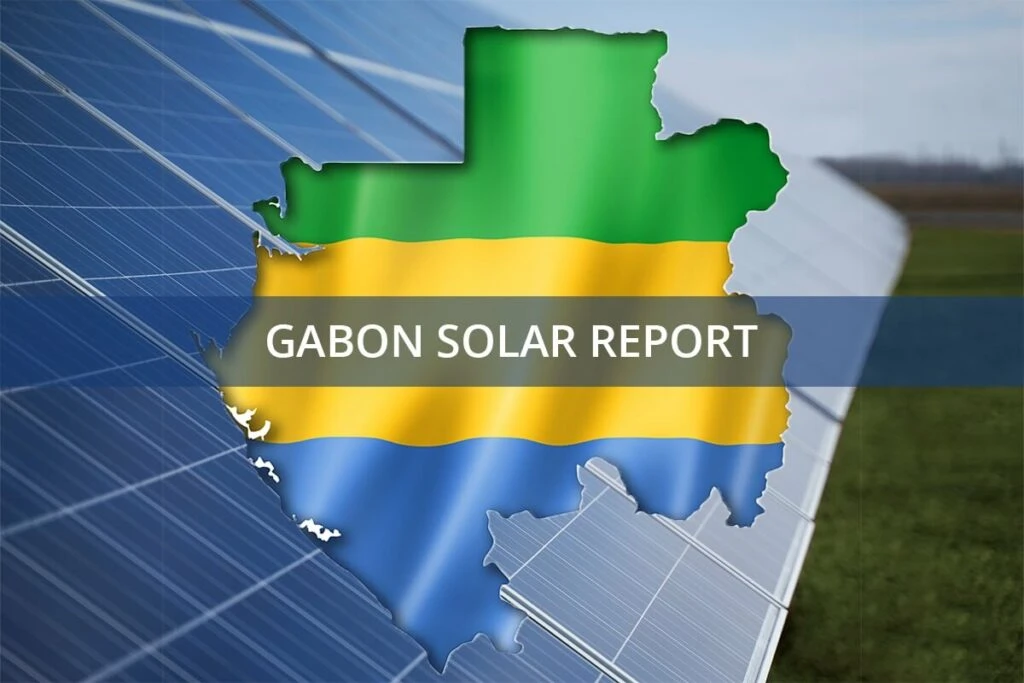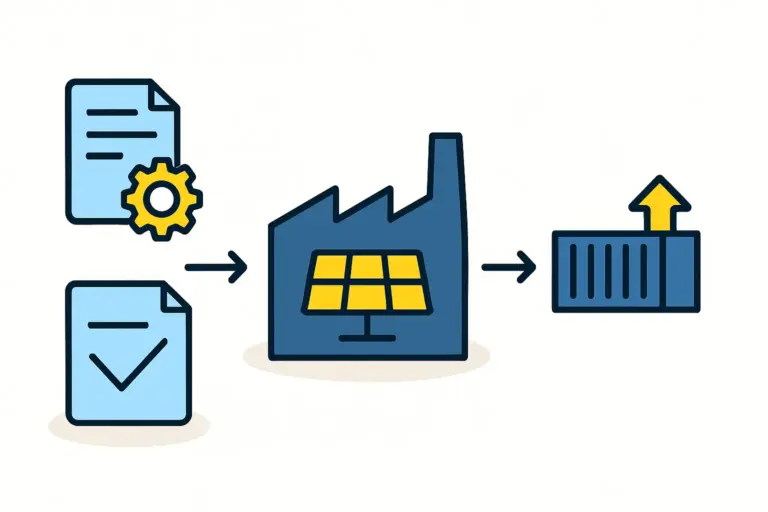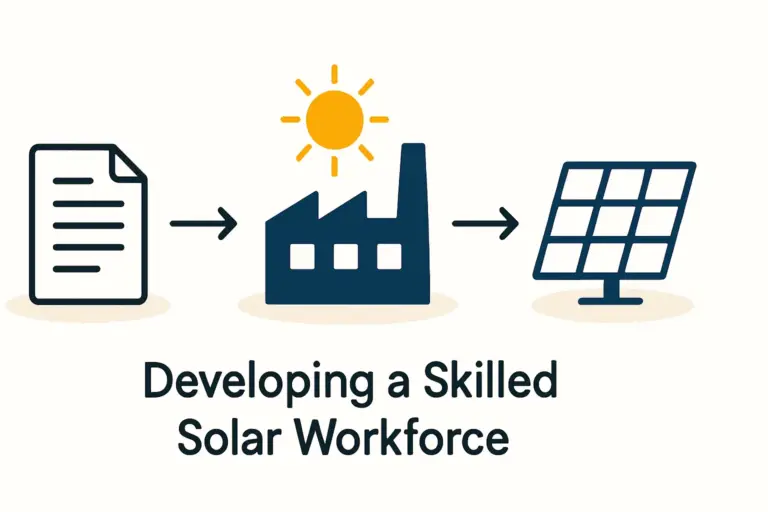Gabon presents a compelling paradox. As one of Africa’s major oil producers, the nation is rich in energy resources, yet electricity remains expensive. In rural areas, less than half the population has access to a reliable grid. This gap between resource wealth and energy access opens up a significant market for those looking to invest in local solar module manufacturing.
This article offers a strategic overview of the primary domestic customers for a solar module factory in Gabon, examining the key sectors poised to drive demand—mining, agriculture, and rural electrification—to paint a clear picture of the commercial landscape for a new manufacturing enterprise.
Understanding Gabon’s Unique Energy Landscape
The scale of this opportunity is rooted in Gabon’s economy and energy infrastructure. The nation’s wealth has been historically tied to oil and gas, which account for approximately 80% of its exports. The government’s “Gabon Emergent 2025” strategic plan, however, aims to diversify the economy, reducing this dependency and fostering new industries.
Energy is central to this plan. Currently, the national grid is concentrated around the capital, Libreville, and the economic hub of Port-Gentil. For much of the country, including vital industries in remote locations, power often comes from expensive and logistically complex diesel generators.
Three core market drivers for solar energy emerge from this context:
-
High Industrial Operating Costs: Businesses in key sectors like mining and timber face significant energy expenses that impact their global competitiveness.
-
A Mandate for Rural Development: The government has a clear objective to electrify over 600 villages currently without grid access.
-
The Push for Economic Diversification: New agricultural and industrial processing projects require reliable power that the current grid cannot always provide.
For an investor, this means a well-structured business plan for a solar panel factory can directly address the nation’s most pressing economic and developmental needs.
Primary Demand Drivers for Locally Manufactured Solar Modules
A successful solar manufacturer in Gabon will find its primary customers within three distinct, high-demand sectors.
The Industrial Off-Taker: Mining and Timber
Gabon is a world leader in the production of manganese and timber. These highly energy-intensive industries are often located far from the national grid, forcing them to rely on diesel fuel for their operations. The volatility of fuel prices and the logistical challenges of transportation present a persistent operational risk and a significant cost.
Solar photovoltaic (PV) systems, particularly hybrid systems that integrate with existing generators, offer these industrial players a direct path to reducing operational expenditures and increasing energy independence.
A government directive banning the export of raw logs has also spurred the growth of a domestic wood processing industry. This move increases the value of Gabon’s exports but also concentrates energy demand at sawmills and processing plants—ideal candidates for large-scale solar installations. A local module manufacturer is well-positioned to supply these projects, offering faster delivery and tailored solutions than international suppliers. This advantage comes from understanding the solar panel manufacturing process and how modules can be adapted for such industrial applications.
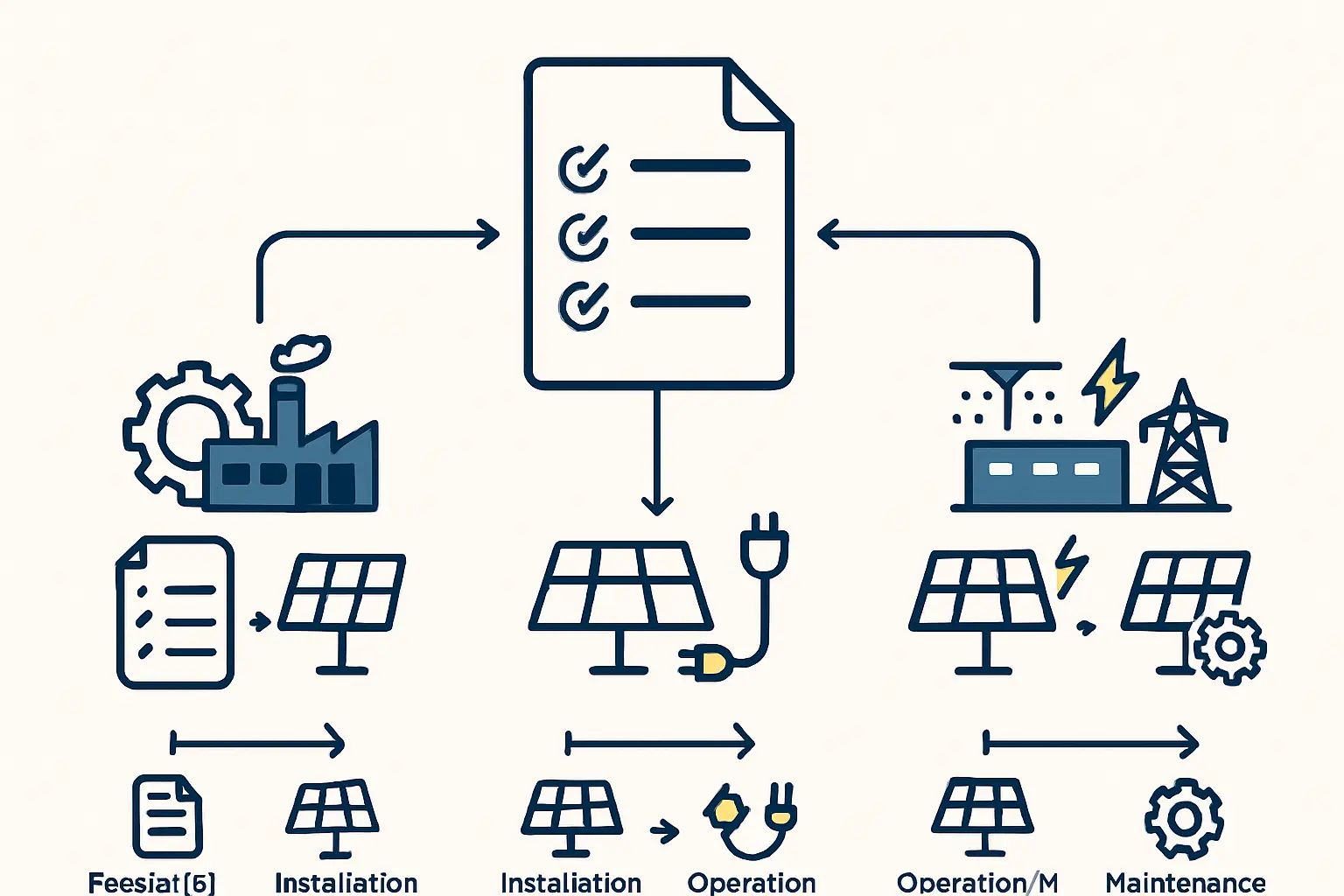
The Agricultural Sector: Powering Food Security
As part of its economic diversification strategy, Gabon is actively promoting agricultural development to achieve food self-sufficiency. The Transformation Acceleration Plan (PAT) supports projects in farming and livestock, which require consistent power for critical systems such as irrigation pumps, cooling and refrigeration units, and processing equipment.
For agricultural enterprises in rural areas, solar power is not just a cost-saving measure; it is an enabling technology. It allows for the development of modern, productive farming operations in locations that would otherwise be non-viable. A local module supplier can be a key partner in this vital sector’s growth, providing the foundational technology for Gabon’s food security goals.

Government-Led Rural Electrification Programs
The Gabonese government has identified rural electrification as a national priority. Bringing power to hundreds of villages is a key developmental goal that stimulates economic activity and improves quality of life across the country. Solar mini-grids and standalone systems are the most viable and cost-effective solutions for achieving this objective at scale.
For a local solar module manufacturer, government tenders for these projects offer a substantial, reliable source of demand. Producing modules domestically aligns perfectly with national interests, as it supports local job creation, facilitates technology transfer, and reduces the country’s import bill. A local manufacturing presence often unlocks preferential treatment in public procurement processes, as experience from J.v.G. turnkey projects in emerging markets has shown. Succeeding in these large-scale projects requires a deep understanding of the necessary solar panel manufacturing equipment to ensure production can meet government timelines and quality standards.
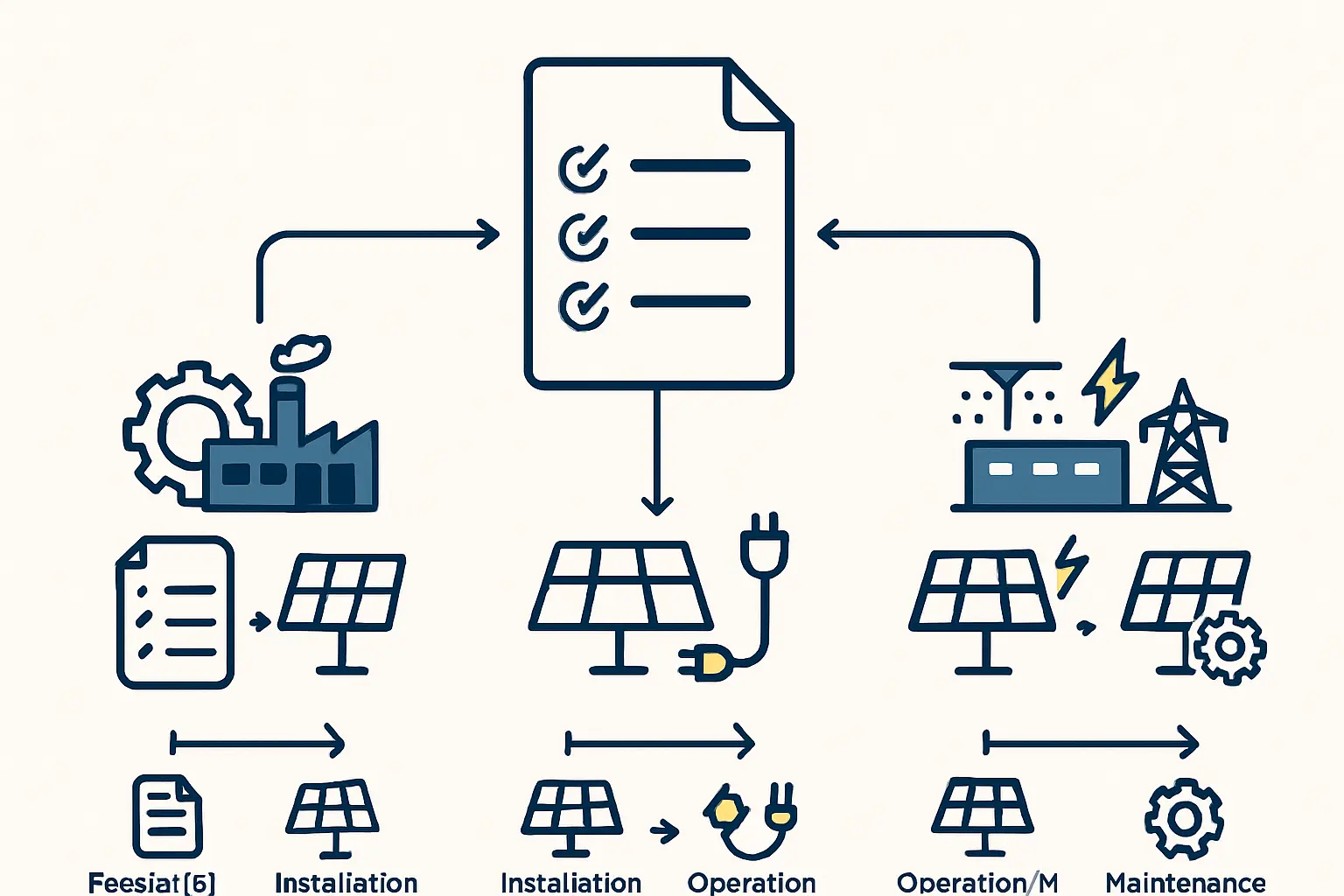
The Strategic Advantage of Local Production in Gabon
While importing solar modules is always an option, establishing a local manufacturing facility offers distinct competitive advantages in a market like Gabon:
-
Reduced Logistical Costs: Eliminating international shipping and reducing import tariffs can make locally produced modules more cost-competitive.
-
Supply Chain Resilience: A local factory is immune to global shipping disruptions and can provide modules on shorter lead times, a critical advantage for large projects.
-
Customization: Modules can be designed and built to withstand specific local environmental conditions, such as high heat and humidity.
-
National Preference: A “Made in Gabon” product carries significant weight in both public and private sector procurement, aligning with national economic goals.
For entrepreneurs serious about starting a solar panel business in the region, local production isn’t merely an alternative to importing—it’s a superior business model tailored to the market’s unique dynamics.
Frequently Asked Questions (FAQ)
What is the typical scale for a starter solar module factory in a market like Gabon?
A viable entry-level factory typically starts with an annual production capacity of 20 to 50 MW. Such an operation can be established in a building of approximately 2,000–3,000 square meters and can be run with a workforce of 25–40 employees, making it a manageable initial investment.
Why not just import solar panels?
Importing panels exposes a business to volatile shipping costs, lengthy delivery times, and potential import tariffs. Local production mitigates these risks, allows for customization to local climate conditions, and provides a powerful “Made in Gabon” marketing advantage that is especially valuable for government contracts.
Is Gabon’s climate suitable for solar energy?
Yes. Despite being in the Congo Basin with significant cloud cover and humidity, Gabon receives high levels of solar irradiation throughout the year. Modern PV technology performs efficiently even in diffuse light conditions, making it a reliable energy source for the country.
What are the main challenges for a new solar manufacturer in Gabon?
Like any new industrial enterprise in an emerging market, challenges may include navigating administrative processes, developing a skilled local workforce, and establishing reliable inbound logistics for raw materials. However, these are surmountable challenges that can be managed with thorough planning and the right technical partnership.
Next Steps in Your Assessment
A significant demand for solar modules clearly exists within Gabon’s key economic sectors. The convergence of industrial need, agricultural growth, and government policy creates a fertile ground for a local manufacturing enterprise.
For a prospective investor, the next logical step is a detailed feasibility study. Developing a comprehensive business plan is essential to understanding the specific financial requirements, operational setup, and potential return on investment. For entrepreneurs seeking a structured approach, resources such as the pvknowhow.com e-course can provide a clear framework for this critical planning phase.

